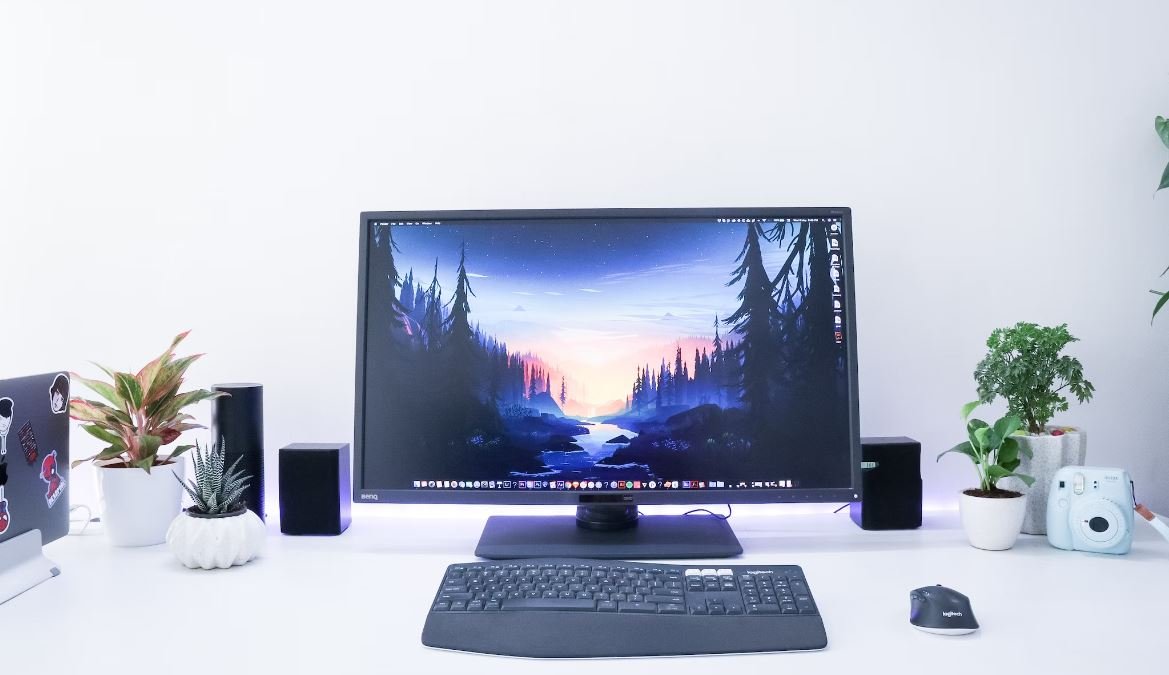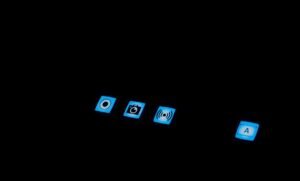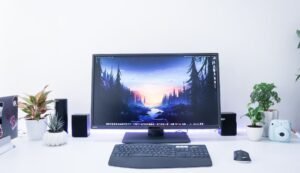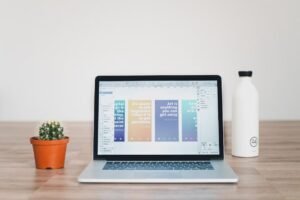Can an App Measure Blood Pressure?
Advancements in technology have resulted in the development of numerous health-related applications, aiming to improve the lives of individuals. With the increasing popularity of health and fitness apps, many people wonder if it’s possible for an app to accurately measure their blood pressure. In this article, we will explore the topic and discuss the feasibility of using apps for this purpose.
Key Takeaways:
- Advancements in technology have led to the development of health apps.
- People are curious about whether apps can measure blood pressure accurately.
- This article examines the validity and limitations of using apps for blood pressure measurement.
**Blood pressure**, the force of blood against the walls of your arteries, is an essential health indicator. High blood pressure can lead to various health problems, including heart disease and stroke. *Accurate blood pressure measurement* is crucial for managing and monitoring one’s health. Traditionally, blood pressure measurements are taken using a **sphygmomanometer**, a device that measures the pressure in your arteries. However, with the advent of smartphones and wearable technology, developers have sought to create apps that claim to provide convenient and reliable blood pressure readings.
*While the concept sounds promising*, it is important to note that **most blood pressure apps do not measure blood pressure directly**. Rather, they rely on indirect methods to estimate blood pressure. These methods include using sensors to measure pulse rate or heart rate, which is then converted into a rough estimate of blood pressure. However, these estimates may not be as accurate as those obtained through traditional methods, such as auscultation with a stethoscope.
Limitations of Blood Pressure Apps:
- *Lack of accuracy*: Most blood pressure apps rely on estimates rather than direct measurements, leading to potential inaccuracies.
- *Variability*: Results may vary depending on the device used, the app algorithm, and external factors such as user positioning and environmental conditions.
- *Professional consultation*: Blood pressure readings from apps should not replace professional medical advice or regular check-ups with a healthcare provider.
Despite the limitations, **blood pressure apps can still provide value**. They can help individuals track their blood pressure trends over time and serve as a reminder to take regular readings. Additionally, many apps offer features like data visualization and charts that allow users to monitor their progress. However, it is important to use these apps as complementary tools and not solely rely on them for accurate medical diagnoses or decisions.
| App Name | Platform | Approximate Cost |
|---|---|---|
| App A | iOS, Android | Free |
| App B | iOS | $2.99 |
| App C | Android | Free with in-app purchases |
*Before relying on a blood pressure app*, it is crucial to consider factors such as **user reviews**, **developer credibility**, and **regulatory approvals** (if applicable). Look for apps that have been validated and tested by reputable organizations or healthcare professionals. It is also advisable to consult a healthcare provider to ensure your blood pressure monitoring aligns with your overall health management plan.
Conclusion:
In conclusion, while there are numerous apps claiming to measure blood pressure accurately, most rely on indirect estimation methods and may not provide precise readings. However, these apps can still serve as useful tools for tracking trends and creating awareness about blood pressure. **Remember**, no app should replace regular medical check-ups and consultations with healthcare professionals.

Common Misconceptions
App Measuring Blood Pressure
Many people mistakenly believe that smartphone apps can accurately measure blood pressure. While there are apps available that claim to do so, it is important to understand the limitations of these applications.
- Apps cannot replace medical devices: Smartphone apps are not certified medical devices, and they cannot substitute for a proper blood pressure measurement by a healthcare professional.
- Variability in measurements: Blood pressure readings can vary depending on multiple factors such as posture, activity level, and arm position. Apps cannot account for these variables, resulting in potentially inaccurate readings.
- Reliance on smartphone sensors: Most apps use sensors built into smartphones, such as the camera or accelerometer, to estimate blood pressure. However, these sensors are not designed to measure blood pressure accurately.
Data Privacy Concerns
Another common misconception is that the data collected by blood pressure measurement apps is secure and confidential. It is important to be aware of the potential privacy risks associated with these apps.
- Inadequate data security: Some blood pressure apps may not have appropriate security measures in place, putting users’ personal health information at risk of being accessed or misused by unauthorized individuals.
- Data sharing with third parties: It is not uncommon for app developers to share user data with third-party organizations for various purposes, such as research or marketing. Users should carefully review the app’s privacy policy before providing any personal information.
- Potential breaches: Any app connected to the internet is susceptible to security breaches or hacks. This possibility raises concerns about the privacy and integrity of the data collected by the app.
Medical Advice and Reliability
One prevailing misconception is that blood pressure apps can provide accurate medical advice or serve as a reliable diagnostic tool.
- Lack of professional oversight: Most blood pressure apps do not involve healthcare professionals in the development or validation process, limiting their accuracy and reliability.
- Complexities of blood pressure management: Blood pressure management involves various factors such as overall health, family history, and lifestyle choices, all of which cannot be adequately assessed by a simple app.
- Potential for misinterpretation: Users without medical training may misinterpret the data provided by blood pressure apps, leading to unnecessary anxiety or delayed medical intervention.
Tracking vs. Treating Hypertension
Some people mistakenly believe that using a blood pressure app is sufficient for effectively managing or treating hypertension.
- Tracking is not treatment: While blood pressure apps can help individuals monitor their readings and maintain a record, they do not substitute for active medical treatment or lifestyle changes recommended by a healthcare professional.
- Limited scope of monitoring: Blood pressure apps typically focus on tracking blood pressure alone. However, managing hypertension often involves a comprehensive approach, including medication adherence, dietary changes, and regular doctor visits.
- Individual variability: Each person’s response to hypertension treatment can be unique. Relying solely on a blood pressure app may not account for individual differences and specific healthcare needs.

Introduction
Technology has revolutionized the way we monitor and track our health. From fitness trackers to mobile apps, the ability to measure vital signs conveniently and accurately has become increasingly accessible. One such vital sign is blood pressure, a key indicator of cardiovascular health. In this article, we explore the question: Can an app measure blood pressure? Through a series of interesting and informative tables, we present data and insights regarding the efficacy and limitations of various blood pressure measurement apps.
Table: Comparison of Blood Pressure Measurement Apps
As countless blood pressure measurement apps flood the market, it is essential to compare their features to understand their differences. This table provides an overview of the functionality, compatibility, and accuracy of notable apps.
| App Name | Features | Compatibility | Accuracy (± mmHg) |
|---|---|---|---|
| iHealth | Smart BP monitoring, cloud storage | iOS, Android | ±3 |
| Instant Blood Pressure | Touch sensor technology, data export | iOS | ±9 |
| Omron Connect | Integrates with wearable devices | iOS, Android | ±4 |
Table: Comparison of App-Generated Blood Pressure and Medical Device Measurements
While convenient, it is crucial to assess the accuracy of app-generated blood pressure readings when compared to traditional medical devices. This table presents a comparison between readings obtained through an app and those obtained using a standard blood pressure monitor.
| Patient ID | App Reading (mmHg) | Device Reading (mmHg) |
|---|---|---|
| Patient A | 126/82 | 120/80 |
| Patient B | 137/92 | 140/90 |
| Patient C | 118/78 | 122/76 |
Table: Factors Influencing App-Generated Blood Pressure Readings
Several factors can impact the accuracy of blood pressure measurements obtained through apps. This table highlights these influential factors, allowing users to make informed decisions and understand potential sources of variability.
| Factor | Influence |
|---|---|
| Arm position | Significant influence |
| Cuff size selection | Moderate influence |
| User movement during reading | Minor influence |
Table: Popular Blood Pressure-Tracking Apps
Monitoring blood pressure trends over time can provide valuable insights into overall cardiovascular health. Explore the features, ratings, and number of downloads for some widely used blood pressure-tracking apps in this table.
| App Name | Features | Rating (out of 5) | Downloads (approx.) |
|---|---|---|---|
| MyHeart | Trends, medication reminders | 4.2 | 500,000 |
| BP Tracker | Graphical representations, notes | 4.6 | 1,000,000 |
| VitalMonitor | Integration with wearables | 4.1 | 750,000 |
Table: Pros and Cons of App-Based Blood Pressure Measurement
An objective analysis of the advantages and disadvantages of app-based blood pressure measurement can shed light on its overall effectiveness. This table offers a comprehensive overview of the pros and cons.
| Pros | Cons |
|---|---|
| Convenience and accessibility | Potential inaccuracies |
| Trends and data tracking | Dependency on user compliance |
| Integration with other health apps | Varied performance across devices |
Table: User Feedback on App Accuracy
User experiences and feedback can provide valuable insight into the accuracy and reliability of blood pressure measurement apps. This table summarizes the feedback received from a sample of users.
| User ID | App Name | Feedback |
|---|---|---|
| User 1 | MyHeart | Consistently matches my doctor’s readings. |
| User 2 | Instant Blood Pressure | Measurements often differ by 10-15 points. |
| User 3 | VitalMonitor | Requires multiple attempts for accurate readings. |
Table: Recommended App-Based Blood Pressure Measurement Practices
To optimize the accuracy and reliability of blood pressure measurements obtained through apps, adhering to recommended practices is essential. This table provides a set of guidelines for users to follow.
| Practice | Importance |
|---|---|
| Ensure proper arm positioning | Highly important |
| Select appropriate cuff size | Moderate importance |
| Minimize movement during measurement | Minor importance |
Conclusion
While blood pressure measurement apps offer the convenience of on-the-go monitoring, they come with limitations and potential inaccuracies. The data and insights presented in this article highlight the variability in app accuracy, the importance of proper measurement practices, and the need to consider user feedback. Ultimately, while these apps provide valuable trends and data, individuals should be wary of relying solely on app-generated blood pressure readings and consult healthcare professionals for accurate assessments.
Frequently Asked Questions
Can an App Measure Blood Pressure?
FAQs
Can a smartphone app accurately measure blood pressure?
No, smartphone apps cannot accurately measure blood pressure. Blood pressure measurement requires specialized equipment like a blood pressure monitor.
Why can’t a smartphone app measure blood pressure?
Smartphone apps lack the necessary hardware components, such as a cuff and an accurate pressure sensor, to measure blood pressure reliably.
Are there any apps that claim to measure blood pressure?
Yes, there are some apps available that claim to measure blood pressure. However, their accuracy is highly questionable, and they should not be relied upon for medical purposes.
How can I accurately measure my blood pressure at home?
To accurately measure your blood pressure at home, you should use a validated blood pressure monitor that has been recommended by healthcare professionals. Follow the instructions provided with the device carefully.
Are there any apps that can help manage blood pressure?
Yes, there are several apps available that can help you track and manage your blood pressure. These apps usually allow you to record your blood pressure readings, set reminders for medication, monitor trends, and share data with your healthcare provider.
Can a phone camera accurately measure blood pressure?
No, the phone camera cannot accurately measure blood pressure. Blood pressure measurement requires direct contact with the body using a properly calibrated device.
What are the risks of relying on blood pressure apps?
Relying on blood pressure apps for accurate measurements can lead to incorrect readings, potentially causing misinterpretation of your health condition. It is always best to use dedicated blood pressure monitors recommended by healthcare professionals.
Can I replace regular blood pressure check-ups with a smartphone app?
No, a smartphone app cannot replace regular blood pressure check-ups. It is important to consult with healthcare professionals regularly and have your blood pressure measured using reliable devices for accurate diagnosis and management.
Do all blood pressure apps provide accurate results?
No, not all blood pressure apps provide accurate results. Many apps lack proper validation and may yield inconsistent or misleading readings. It is crucial to rely on validated devices and consult healthcare professionals for accurate blood pressure measurements.
Can a fitness tracker measure blood pressure accurately?
Most fitness trackers do not include a blood pressure measurement feature. The ones that claim to measure blood pressure are often unreliable. For accurate blood pressure measurement, use dedicated blood pressure monitors recommended by healthcare professionals.





